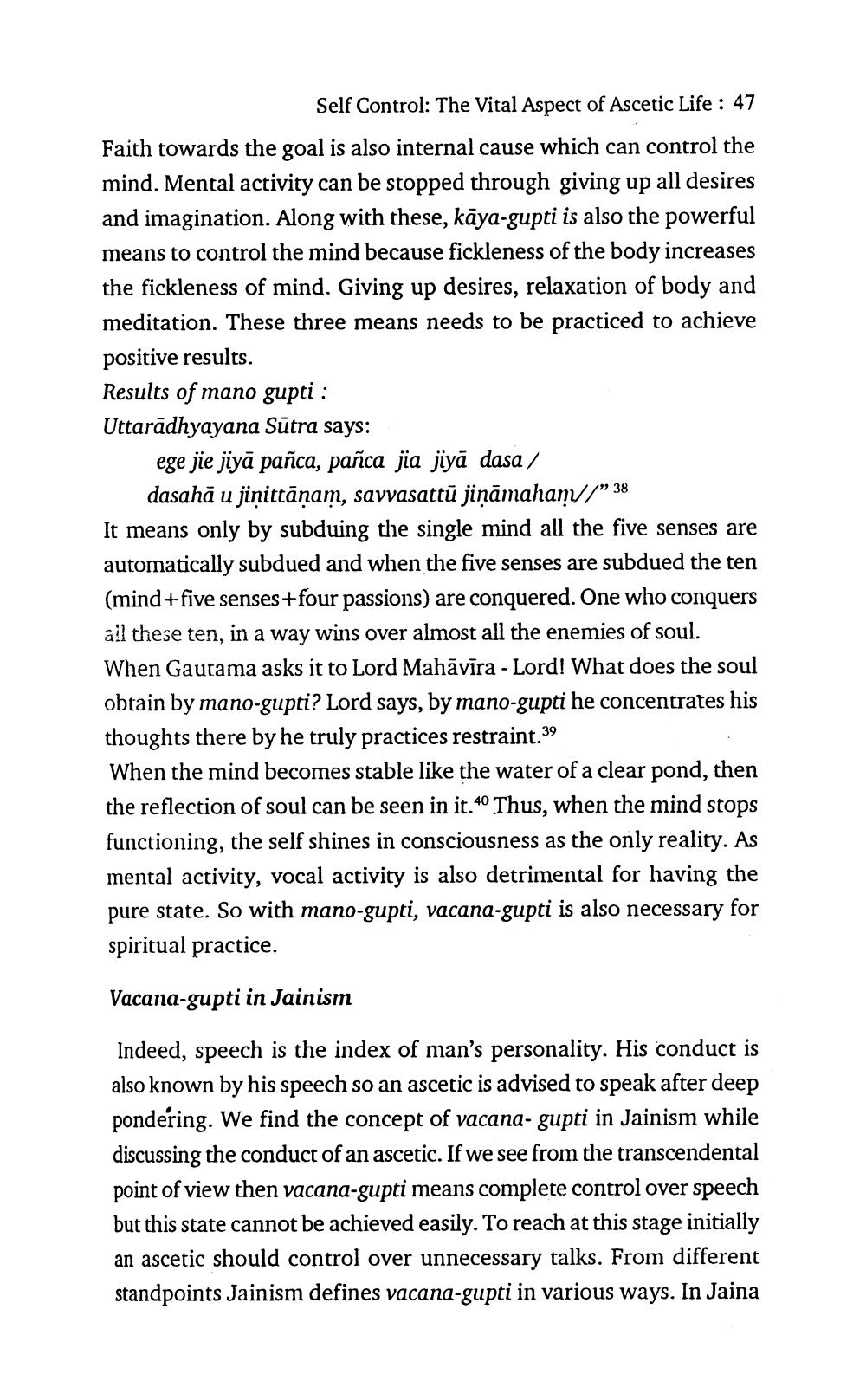________________
Self Control: The Vital Aspect of Ascetic Life : 47 Faith towards the goal is also internal cause which can control the mind. Mental activity can be stopped through giving up all desires and imagination. Along with these, kāya-gupti is also the powerful means to control the mind because fickleness of the body increases the fickleness of mind. Giving up desires, relaxation of body and meditation. These three means needs to be practiced to achieve positive results. Results of mano gupti : Uttarādhyayana Sūtra says:
ege jie jiyā pañca, pañca jia jiya dasa /
dasahā u jiņittāṇam, savvasattū jiņāmaham//” 38 It means only by subduing the single mind all the five senses are automatically subdued and when the five senses are subdued the ten (mind+five senses+four passions) are conquered. One who conquers all these ten, in a way wins over almost all the enemies of soul. When Gautama asks it to Lord Mahāvīra - Lord! What does the soul obtain by mano-gupti? Lord says, by mano-gupti he concentrates his thoughts there by he truly practices restraint. 39 When the mind becomes stable like the water of a clear pond, then the reflection of soul can be seen in it. 40 Thus, when the mind stops functioning, the self shines in consciousness as the only reality. As mental activity, vocal activity is also detrimental for having the pure state. So with mano-gupti, vacana-gupti is also necessary for spiritual practice.
Vacana-gupti in Jainism
Indeed, speech is the index of man's personality. His conduct is also known by his speech so an ascetic is advised to speak after deep pondering. We find the concept of vacana- gupti in Jainism while discussing the conduct of an ascetic. If we see from the transcendental point of view then vacana-gupti means complete control over speech but this state cannot be achieved easily. To reach at this stage initially an ascetic should control over unnecessary talks. From different standpoints Jainism defines vacana-gupti in various ways. In Jaina




